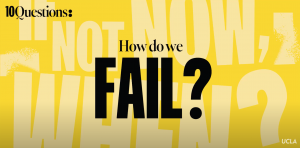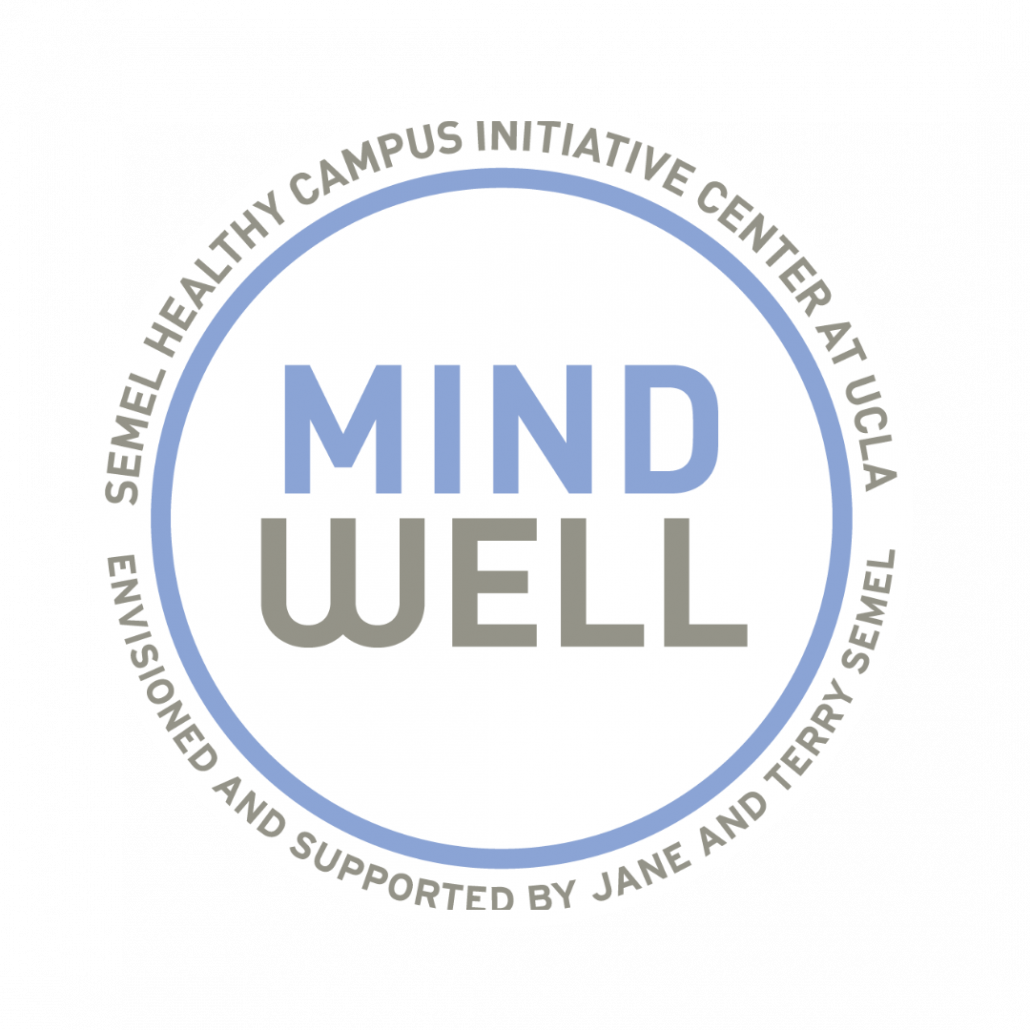Sexual Assault & Violence Survivors

- Get confidential help and/or file a complaint about sexual violence.
- Open access resources on Canvas for information on sexual assault and relationship victims
- EROC Centering the Margins resources – understanding how survivorship intersects with multiple identities related to power and bias
Students

- Worried your friends might be in distress? Learn how to Identify Distressed Students and how to refer them to get help.
- The Anonymous Mental Health Screening Program is a free, anonymous screening and takes only a few minutes to complete. The screening can help you decide whether professional consultation would be useful.
Staff & Faculty

- The UC Mental Health Handbook: Provides in-depth information on about mental health and examines the role faculty and staff members can play in providing a supportive academic environment. See specific UCLA resources to refer students to here.
- Worried one of your students might be in crisis? See the Faculty & Staff 911 Guide and more through the UCLA Consultation & Response Team.
- Consult the Consultation & Response Team to help a student in distress.
- See an employee or staff member in distress? Reach out to UCLA’s Behavioral Intervention Team. See their brochure here.
- Consult the Red Folder for guidance on how to assist students in crisis.
- UCLA’s Staff and Faculty Counseling Center (SFCC) fosters a productive and supportive work environment for all employees through a wide range of services. All services are free, voluntary, and confidential. SFCC Brochure online here.
Working through trauma and disasters

- Managing Traumatic Stress: Tips for recovering from disaster and other traumatic events.
- Mass Disasters, Trauma, and Loss: resource about post-traumatic stress and how to cope.
- How to Talk to Children about Bombings: Guide from the National Child Traumatic Stress Network.
Psychological Support Videos

- 10 Questions: If not now, When?: How do we fail?: Oncology chaplain, LGBTQ educator/activist, and inspirational speaker Michael Eselun; scholar of society and technology policy Safiya Noble; and artist Anna Sew Hoy will joined Victoria Marks, professor in the UCLA Department of World Arts and Cultures/Dance, to explore the question “How do we fail?”
Psychological Support Apps
- Breathe2Relax (Teaches breathing techniques to manage stress, can be applied to anxiety disorders)
- Headspace (Applied to both anxiety and depression, teaches skills including mindfulness, and cognitive diffusion, breathing exercises, meditation practice, tips for increased relaxation, concentration)
- Moodkit (Useful for both anxiety and depression, the skills taught include self-monitoring, identifying and changing unhealthy thought patterns, and engaging in mood-enhancing activities)
- Moodtools (FREE, Depression resource, provides psychoeducation, a depression symptom questionnaire (PHQ-9), a thought diary, a suicide safety plan, and videos designed to combat negative thoughts and alleviate feelings of hopelessness)
- ADHD Advisor (Useful for anxiety, depression, PTSD, and other mental healthcare)
- T2 Mood Tracker (Useful for both anxiety and depression, helps to track emotional states)
- What’s up (Uses CBT and Acceptance Commitment therapy to track positive and negative habits)
- SuperBetter (Helps to increase resiliency, strength, and optimism to relieve symptoms of anxiety, depression, and PTSD)
*None of these apps have been reviewed by MindWell and are not endorsed by the Healthy Campus Initiative or UCLA.
